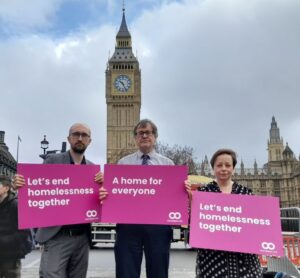We help people off the streets and into safe accommodation. Without our support many people would die on the streets.
We need your support to keep delivering this vital work and help people like Dan, who found himself homeless after a relationship breakdown and motorcycle accident.
‘I was depressed, living in a tent, and the weather was getting colder and colder. Now I’m sitting in my own rented flat, so I’m very grateful for the support.’














